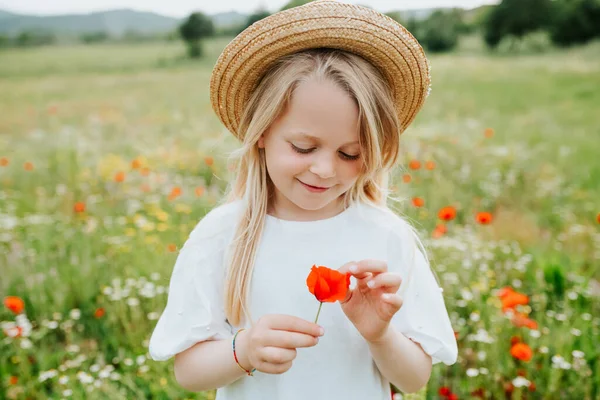
The power of gratitude: how to cultivate an attitude of thankfulness
Sure, here's an introduction for your blog on "The power of gratitude: how to cultivate an attitude of thankfulness":
Are you feeling stressed, anxious, or just plain grumpy? It's time to shift your perspective and embrace the power of gratitude. In a world that often feels overwhelming and negative, practicing thankfulness can help you find joy, peace, and contentment.
But what exactly is gratitude? Is it just a fuzzy feeling or is there something more to it? According to research, gratitude is a positive emotion that is characterized by appreciation for what one has. It's not just about saying "thank you" or feeling good about receiving a gift. It's about recognizing the good things in your life, big and small, and feeling thankful for them.
So why is gratitude so powerful? For starters, studies have shown that cultivating an attitude of thankfulness can improve your mental health, increase your resilience, and even boost your physical well-being. But it's not always easy to practice gratitude, especially when life throws us curveballs. That's why this blog is here to help.
But don't worry, we won't be asking you to write a thank-you note to every person you've ever met (although that's not a bad idea!). We'll be exploring practical strategies for cultivating gratitude in your daily life, overcoming common obstacles, and finding moments of thankfulness even in challenging situations. So buckle up and get ready to discover the power of gratitude – and maybe even crack a smile or two along the way!
The benefits of gratitude

The Benefits of Gratitude
If you think gratitude is just a warm fuzzy feeling, think again. Research has shown that cultivating an attitude of thankfulness can have some serious benefits for your mental, physical, and emotional health. So what are you waiting for? Get ready to reap the rewards of gratitude!
A. Improved mental health
Do you struggle with anxiety, depression, or just general feelings of blah-ness? Gratitude might be just the ticket. Studies have shown that practicing thankfulness can reduce symptoms of anxiety and depression, increase positive emotions, and even improve sleep quality. It's like a mental health superfood!
B. Increased resilience
Life is full of ups and downs, but gratitude can help you weather the storm. When you practice gratitude, you're more likely to bounce back from adversity, cope with stress, and find meaning in difficult experiences. It's like a mental and emotional bungee cord!
C. Better physical health
Believe it or not, gratitude can even boost your physical health. Studies have linked gratitude to lower levels of inflammation, improved heart health, and even a stronger immune system. It's like a multivitamin for your body!
D. Improved relationships
Do you want to be a better friend, partner, or family member? Gratitude can help. When you express appreciation for the people in your life, you're more likely to feel connected, satisfied, and supported. It's like a social glue that keeps relationships strong!
E. Increased happiness and well-being
Last but not least, gratitude can simply make you happier. When you focus on the good things in your life, you're more likely to feel content, optimistic, and fulfilled. It's like a happiness hack that's available to everyone!
So if you're looking to improve your mental, physical, and emotional health, gratitude might just be the secret ingredient you've been missing. And the best part? It's free, it's easy, and it's available to everyone. So go ahead and give thanks – your mind and body will thank you back!
How gratitude works

How Gratitude Works
Okay, so gratitude has some pretty impressive benefits. But how exactly does it work? Is there some magical gratitude fairy sprinkling happy dust on your brain? Well, not exactly. Here's what's happening behind the scenes when you practice gratitude:
A. Shifting your perspective
When you practice gratitude, you're essentially rewiring your brain to focus on the positive instead of the negative. Instead of dwelling on what's going wrong in your life, you're training yourself to notice and appreciate the good things. It's like putting on gratitude goggles that filter out the negativity!
B. Boosting positive emotions
When you feel grateful, you're experiencing a positive emotion. And as it turns out, positive emotions have a ripple effect. They can help you feel more optimistic, energized, and connected to others. It's like a happiness contagion!
C. Building resilience
Gratitude can also help you build resilience, or the ability to bounce back from adversity. When you practice thankfulness, you're cultivating a sense of hope and optimism that can help you weather the storm when things get tough. It's like an emotional safety net!
D. Rewiring your brain
Believe it or not, gratitude can actually rewire your brain. Studies have shown that practicing thankfulness can increase activity in the prefrontal cortex, which is associated with positive emotions and decision-making. It's like a mental workout for your brain!
E. Creating a virtuous cycle
When you practice gratitude consistently, you're creating a virtuous cycle of positive emotions, thoughts, and behaviors. You're more likely to notice the good things in your life, which makes you feel happier, which makes you more likely to notice the good things... you get the idea. It's like a gratitude snowball that gets bigger and bigger!
So if you're wondering how gratitude can have such powerful effects on your mind and body, now you know. It's all about shifting your perspective, boosting positive emotions, building resilience, rewiring your brain, and creating a virtuous cycle of goodness. And all it takes is a little bit of practice – and maybe some gratitude goggles!
Strategies for cultivating gratitude

Strategies for Cultivating Gratitude
So, you're sold on the benefits of gratitude. But how do you actually cultivate an attitude of thankfulness? Luckily, there are plenty of strategies you can try – and no, you don't have to start wearing a "Grateful AF" t-shirt (although it couldn't hurt). Here are some ideas:
A. Keep a gratitude journal
One of the most popular gratitude practices is keeping a gratitude journal. Simply take a few minutes each day to jot down a few things you're thankful for. It's like a mental warm-up exercise!
B. Practice mindfulness
Mindfulness and gratitude go together like pumpkin spice and lattes. When you're mindful, you're more likely to notice the good things in your life and savor them. It's like a gratitude magnifying glass!
C. Express gratitude to others
Another powerful way to cultivate gratitude is by expressing it to others. Take time to thank the people in your life who have helped you, supported you, or just made you smile. It's like a gratitude ripple effect!
D. Find the silver lining
It's easy to get bogged down by the negative things in life, but there's almost always a silver lining if you look for it. Try to reframe challenging situations as opportunities for growth or learning. It's like a gratitude flashlight in a dark room!
E. Practice gratitude rituals
Finally, you can create gratitude rituals that help you cultivate thankfulness on a regular basis. Maybe you start each meal by saying one thing you're grateful for, or you take a gratitude walk every evening. It's like a gratitude habit that becomes second nature!
Remember, there's no one-size-fits-all approach to gratitude. Experiment with different strategies and see what works for you. And don't worry if it feels a little cheesy or awkward at first – it's like anything else, the more you practice, the easier it gets. So go ahead and get your gratitude on – your mind, body, and soul will thank you!
Common obstacles to gratitude

Common Obstacles to Gratitude
Let's be real – cultivating gratitude isn't always easy. There are plenty of obstacles that can get in the way of feeling thankful. Here are some of the most common roadblocks – and how to navigate them:
A. Negativity bias
One of the biggest obstacles to gratitude is the negativity bias – our brain's tendency to focus on the negative. It's like our brain is stuck in a doom and gloom vortex!
The fix: The key is to actively seek out the positive. Try to counteract your negativity bias by intentionally focusing on the good things in your life. It's like a gratitude beam that cuts through the darkness!
B. Comparison trap
Thanks to social media, it's easier than ever to fall into the comparison trap. It's like we're constantly bombarded with curated highlight reels of other people's lives!
The fix: Remind yourself that what you see online is often not the full picture. Focus on your own journey and what you're grateful for. It's like a gratitude blindfold that blocks out the noise!
C. Busy-ness
Let's face it – life can get busy. When we're rushing from one thing to the next, it's easy to forget to pause and feel grateful. It's like we're running a gratitude marathon without even realizing it!
The fix: Build in intentional moments of gratitude throughout your day. Maybe it's taking a minute to appreciate your morning coffee or expressing gratitude to a coworker. It's like a gratitude pit stop that helps you refuel!
D. Entitlement
Sometimes we fall into the trap of feeling entitled to the good things in our life. We start to take them for granted and forget to feel thankful. It's like we're living in a gratitude vacuum!
The fix: Remember that nothing is guaranteed in life. Try to cultivate a sense of appreciation and awe for the good things in your life, rather than feeling entitled to them. It's like a gratitude reality check!
E. Stress and anxiety
When we're feeling stressed or anxious, it can be hard to feel grateful. Our brain is too busy worrying about what could go wrong to notice what's going right. It's like we're wearing gratitude-blocking earmuffs!
The fix: Take time to actively manage your stress and anxiety, whether it's through meditation, exercise, or talking to a friend. When your mind is calmer, you'll be more able to focus on the good things in your life. It's like a gratitude soundcheck!
Remember, obstacles to gratitude are normal – they're just part of being human. But with a little bit of awareness and intention, you can navigate these roadblocks and cultivate an attitude of thankfulness. It's like a gratitude GPS that helps you find your way!
Overcoming obstacles to gratitude

Overcoming Obstacles to Gratitude
We all face obstacles to gratitude from time to time, but the good news is that there are plenty of strategies we can use to overcome them. Here are some tips for overcoming common obstacles to gratitude:
A. Negativity bias
If you find yourself getting stuck in a negative thought pattern, try a gratitude flip. Take a negative thought and reframe it in a positive way. For example, if you're feeling stressed about a project at work, try focusing on what you're grateful for about your job instead. It's like a gratitude judo move!
B. Comparison trap
When you find yourself comparing your life to others, try a gratitude shift. Take a moment to focus on what you're grateful for in your own life, rather than what you feel like you're lacking compared to others. It's like a gratitude switcheroo!
C. Busy-ness
When life gets hectic, it can be hard to slow down and feel grateful. But making time for gratitude can actually help you feel more centered and less overwhelmed. Try setting a reminder on your phone to take a gratitude break throughout the day, or incorporate gratitude into your morning or evening routine. It's like a gratitude speed bump that helps you slow down and appreciate the journey!
D. Entitlement
If you find yourself feeling entitled to the good things in your life, try a gratitude flip. Instead of taking things for granted, focus on the effort and hard work that went into achieving those things. It's like a gratitude wake-up call!
E. Stress and anxiety
When you're feeling stressed or anxious, it can be hard to feel grateful. But practicing gratitude can actually help reduce stress and anxiety levels. Try incorporating gratitude into your self-care routine, whether it's through meditation, journaling, or simply taking a moment to breathe and focus on the good things in your life. It's like a gratitude stress ball!
Remember, cultivating an attitude of gratitude takes practice and intention. But with a little bit of effort, you can overcome obstacles to gratitude and start feeling more thankful for the good things in your life. It's like a gratitude muscle that gets stronger with use!
Cultivating gratitude in different contexts

Cultivating Gratitude in Different Contexts
Gratitude isn't just for Thanksgiving dinner - it's something we can cultivate in all areas of our lives. Here are some tips for cultivating gratitude in different contexts:
A. At work
When it comes to gratitude at work, it's all about recognizing and appreciating the efforts of your colleagues. Try taking a moment each day to thank someone for their hard work or contribution to a project. You could even start a gratitude board or jar where everyone can write down something they're thankful for about their job or a coworker. It's like a gratitude team huddle!
B. In relationships
Gratitude can be a powerful tool for strengthening relationships. Try making a habit of expressing gratitude to your partner or loved ones each day. It could be as simple as thanking them for making dinner or acknowledging something they did that you appreciate. You could also make a gratitude jar together, where you write down things you're grateful for about each other and read them together on special occasions. It's like a gratitude love fest!
C. With children
Teaching children about gratitude can help them develop positive habits and attitudes early on. Try incorporating gratitude into your family routine, such as sharing something you're thankful for at dinner or before bedtime. You could also create a gratitude journal together, where you write down things you're grateful for each day. It's like a gratitude playground!
D. During difficult times
It can be especially challenging to feel grateful during difficult times, but that's when gratitude can be most powerful. Try making a list of things you're grateful for, no matter how small, and read it whenever you need a pick-me-up. You could also try a gratitude meditation or visualization, where you focus on things you're thankful for and let go of negative thoughts or worries. It's like a gratitude anchor that helps you weather the storm!
Remember, gratitude is a mindset that can be cultivated in all areas of your life. By incorporating gratitude practices into different contexts, you can experience the benefits of gratitude in all areas of your life. It's like a gratitude multi-vitamin that nourishes your mind, body, and soul!
Teaching gratitude to children

Teaching Gratitude to Children
Teaching gratitude to children is a great way to help them develop a positive attitude and healthy habits early on. Here are some tips for helping your kids cultivate an attitude of gratitude:
A. Model gratitude
Children learn by example, so make sure to model gratitude in your own life. Say "thank you" often and express gratitude for the things you have. Children are more likely to pick up on your habits and attitudes than your words, so make sure you're practicing what you preach. It's like leading by gratitude example!
B. Practice gratitude together
Make gratitude a regular part of your family routine. Encourage your children to share something they're grateful for each day, such as a favorite toy or a fun activity they did. You could also create a gratitude jar or bulletin board where you write down things you're thankful for together. It's like a gratitude family project!
C. Encourage acts of kindness
Acts of kindness are a great way to cultivate gratitude and empathy. Encourage your children to perform acts of kindness for others, such as helping with chores or writing a thank you note. When children see the positive impact of their actions, it can help them appreciate the things they have and the people in their lives. It's like a gratitude kindness circle!
D. Read books about gratitude
There are many children's books that focus on gratitude and appreciation. Reading these books together can be a great way to spark conversations about gratitude and reinforce positive attitudes. Some great books to check out include "The Thankful Book" by Todd Parr and "Grateful: A Song of Giving Thanks" by John Bucchino. It's like a gratitude story time!
Remember, teaching gratitude to children is about more than just saying "thank you." By modeling gratitude, practicing it together, encouraging acts of kindness, and reading books about gratitude, you can help your children develop positive habits and attitudes that will serve them well throughout their lives. It's like a gratitude gift that keeps on giving!
The connection between gratitude and spirituality

The Connection Between Gratitude and Spirituality
Gratitude has long been associated with spirituality and religious practice. Here are some ways that gratitude and spirituality are connected:
A. Gratitude as a form of prayer
Many religions incorporate gratitude into their prayer practices. For example, in Christianity, giving thanks to God is an important part of prayer. In Buddhism, gratitude is seen as a way to cultivate compassion and inner peace. Practicing gratitude can be a way to connect with a higher power and express thanks for the blessings in your life.
B. Gratitude as a way to cultivate mindfulness
Many spiritual traditions emphasize the importance of being present and mindful. Practicing gratitude can be a way to cultivate mindfulness and awareness of the present moment. By focusing on the things you're grateful for, you can cultivate a sense of calm and inner peace. It's like a gratitude meditation!
C. Gratitude as a way to connect with others
Many spiritual traditions emphasize the importance of community and connection with others. Gratitude can be a way to connect with others and foster a sense of belonging. By expressing gratitude for the people in your life, you can strengthen your relationships and cultivate a sense of compassion and empathy. It's like a gratitude community builder!
D. Gratitude as a way to find meaning
Many spiritual traditions emphasize the importance of finding meaning and purpose in life. Practicing gratitude can be a way to find meaning and purpose by focusing on the things that matter most to you. By expressing gratitude for the things that bring you joy and fulfillment, you can cultivate a sense of purpose and direction. It's like a gratitude life compass!
Remember, gratitude and spirituality are closely connected. Whether you express gratitude through prayer, mindfulness, connection with others, or finding meaning, it can be a powerful way to cultivate a sense of peace, purpose, and connection with the world around you. It's like a gratitude spiritual journey!
Conclusion
In conclusion, gratitude is a powerful tool that can help us cultivate an attitude of thankfulness and bring positivity into our lives. By focusing on the things we're grateful for, we can shift our perspective and find joy in even the smallest things. Here are some key takeaways from this article:
Gratitude has numerous benefits, including improved mental health, increased happiness, and stronger relationships.
Practicing gratitude involves recognizing and appreciating the good things in our lives, whether big or small.
There are many strategies for cultivating gratitude, such as keeping a gratitude journal, practicing mindfulness, and expressing thanks to others.
Common obstacles to gratitude include stress, negativity bias, and comparison to others.
By overcoming these obstacles and practicing gratitude consistently, we can develop a more positive outlook on life.
Gratitude can be cultivated in many different contexts, including at work, in relationships, and in spiritual practice.
Teaching gratitude to children is important for their development and can set them up for a lifetime of positivity.
Finally, gratitude is closely connected to spirituality and can be a powerful tool for finding meaning, purpose, and connection in our lives.
So, why not start practicing gratitude today? Take a moment to think about the things you're grateful for, and express your thanks to those around you. It may seem simple, but it can make a big difference in your life. As the famous quote by Melody Beattie goes, "Gratitude makes sense of our past, brings peace for today, and creates a vision for tomorrow." So, let's cultivate an attitude of thankfulness and see where it takes us. Happy gratitude-ing!
 Reviewed by jadan
on
March 03, 2023
Rating:
Reviewed by jadan
on
March 03, 2023
Rating:




No comments: